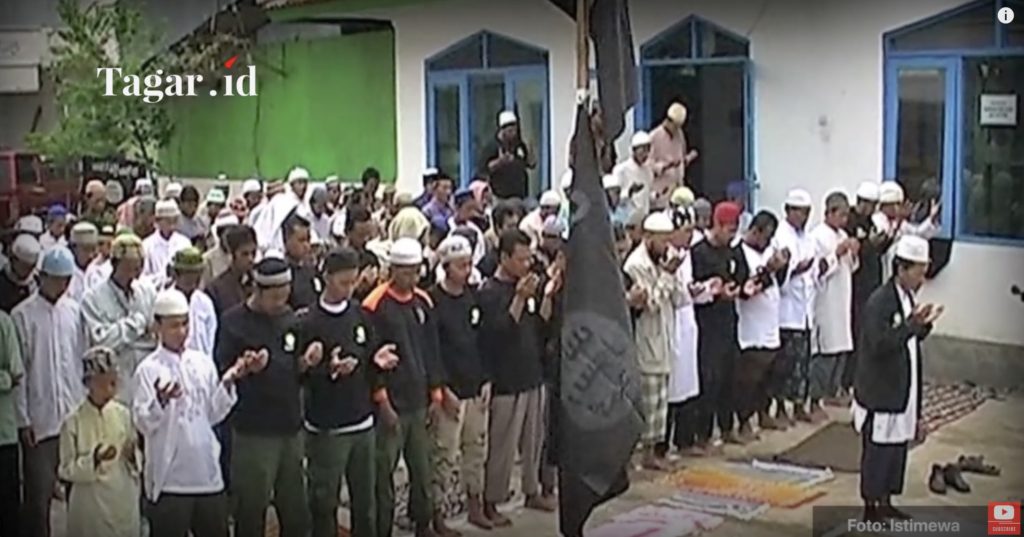Australia/Israel Review
Asia Watch: Rogue cells
Apr 29, 2021 | Michael Shannon

The threat of Islamist terrorism is still very real in Indonesia. While the country’s counter-terrorism operations have scored some important successes, they have never been able fully to extinguish the threat, as two recent attacks have illustrated.
On Sunday March 28, two suicide bombers from Jema’ah Ansharut Daulah (JAD), an Indonesian pro-Islamic State (IS) terrorist organisation, detonated pressure cooker IEDs in front of the Sacred Heart of Jesus Cathedral in Makassar, South Sulawesi, a port city of about 1.5 million. The blast, which resulted in the death of the two perpetrators and injured 20 people, happened just after congregants finished celebrating Palm Sunday, the first day of Holy Week.
Indonesian President Joko Widodo said he strongly condemned “this act of terror.”
The two bombers were a newlywed couple and part of a local militant cell linked to another Indonesian couple who blew themselves up at a cathedral in Jolo, southern Philippines in January 2019, leaving 21 worshippers dead and over 100 wounded.
On the following Wednesday, March 31, a 25-year-old female IS sympathiser, Zakiah Aini, was gunned down at Indonesia’s National Police Headquarters as she reportedly fired six shots from a gas-operated Airsoft pistol that posed little danger of serious injury.
In a handwritten note later found in her room, Zakiah wrote, “I love you very much, but God loves me more, and this is why I have decided to take this road, as that taken by the Prophet, and in doing so saved me and with God’s blessings given you and the family a place in heaven.”
Although no clear ties between the National Police Headquarters attack and the Makassar bombing have been established, follow-up attacks after a large JAD attack are not an uncommon phenomenon.
Despite its many cells and sympathisers who are dispersed across multiple Indonesian provinces, JAD attacks are often conducted by one cell independently of others. A 2021 report from the Jakarta-based Institute of Policy Analysis of Conflict (IPAC) noted that JAD has always been more of a “haphazard conglomeration of cells, organisations, and individuals” as opposed to a well-structured organisation.
JAD first gained notoriety in 2016 for a gun and suicide bomb attack in Jakarta that killed four civilians and four attackers – including one who blew himself up at a Starbucks outlet. It was the first attack claimed by Islamic State in Southeast Asia.
Two years later, a couple and their four children carried out a suicide attack on three churches in Surabaya, Indonesia’s second largest city, on May 13, 2018. The attack killed 18 people, including the bombers. The next day, another couple took their three children along in a suicide attack on the Surabaya police headquarters, killing themselves and two of the children.
Another common thread linking the JAD attacks is how important familial and personal bonds are in facilitating them. Evidently, the two suicide bombers in Makassar were a husband and wife who married six months before their suicide operation. This tactic – a suicide bomb led by a husband and wife pair – was similarly used in previous JAD attacks such as the 2018 Surabaya triple church bombing, which was orchestrated to include their children, and the 2019 Jolo Cathedral attack. By using the family as an attack unit, JAD perpetrators are able to minimise online communication, and thus evade detection, while the small-group dynamic tends to reinforce their commitment to the operation.
Following the Makassar attack, the elite counterterror unit Detachment 88 has rounded up at least 31 suspected JAD members in Makassar, West Nusa Tenggara, and East and West Java. One suspect was shot and killed by police after he ignored warning shots and lunged at them during a raid on his house in Makassar.
During the raid in Bekasi, West Java, police found five bombs, four kilograms of bomb-making material and 1.5 kilograms of highly explosive acetone peroxide (TATP). TATP is now widely used by terrorists because it is prepared from readily available ingredients, including hair bleach and nail polish remover, and can pass undetected through conventional explosive detection scanners.
Police also disclosed that the militants had created a WhatsApp group called “the Battalion of Faith,” where members allegedly discussed attack plans.
The recent arrests would likely weaken JAD in Makassar, says Muh Taufiqurrohman, a senior researcher at the Centre for Radicalism and Deradicalisation Studies (PAKAR) in Central Java, estimating that the local cell has 60 members. He told BenarNews that other cells in the province remain largely intact, warning that “JAD members are committed to fighting the authorities to their death. They prefer to die resisting authorities than to be captured alive.”
Even though the scale of the recent attacks is small, JAD’s diffuse but close knit cells could still employ their rudimentary technology to increasingly deadly effect.
Tags: Indonesia, Islamic Extremism, Terrorism






